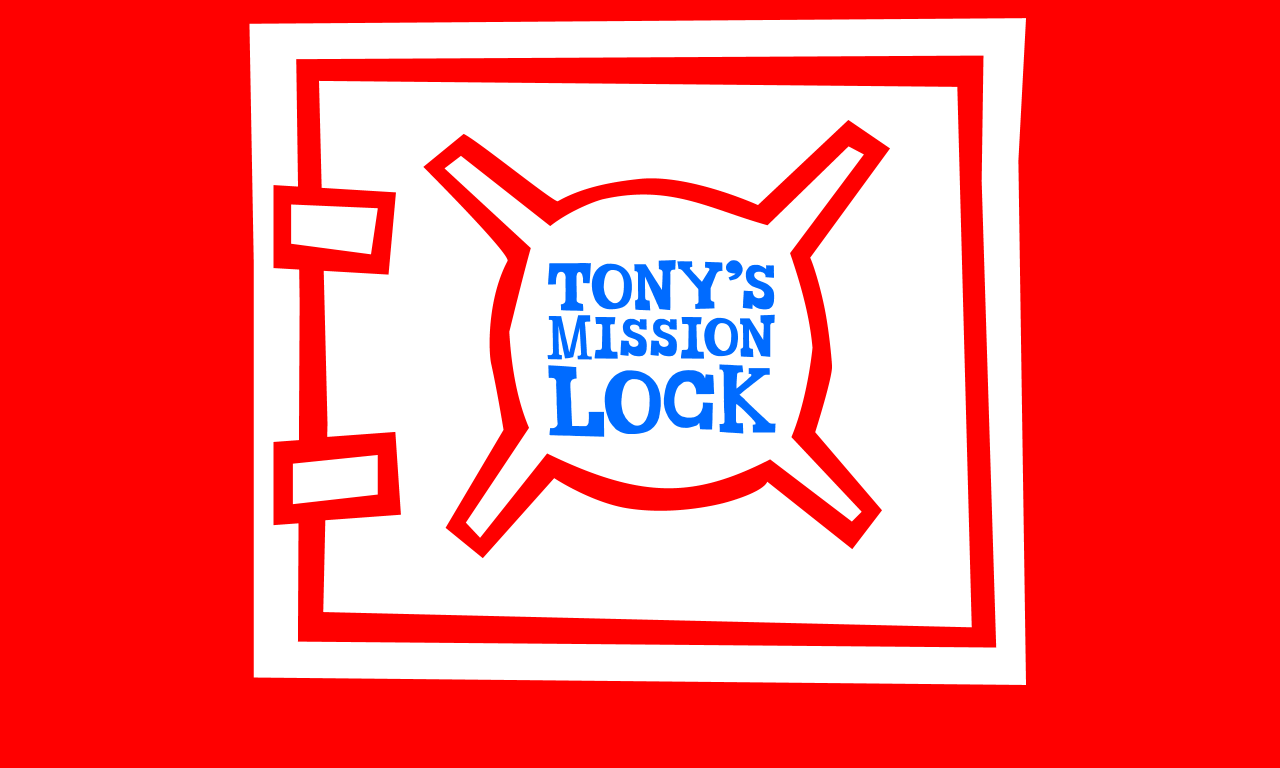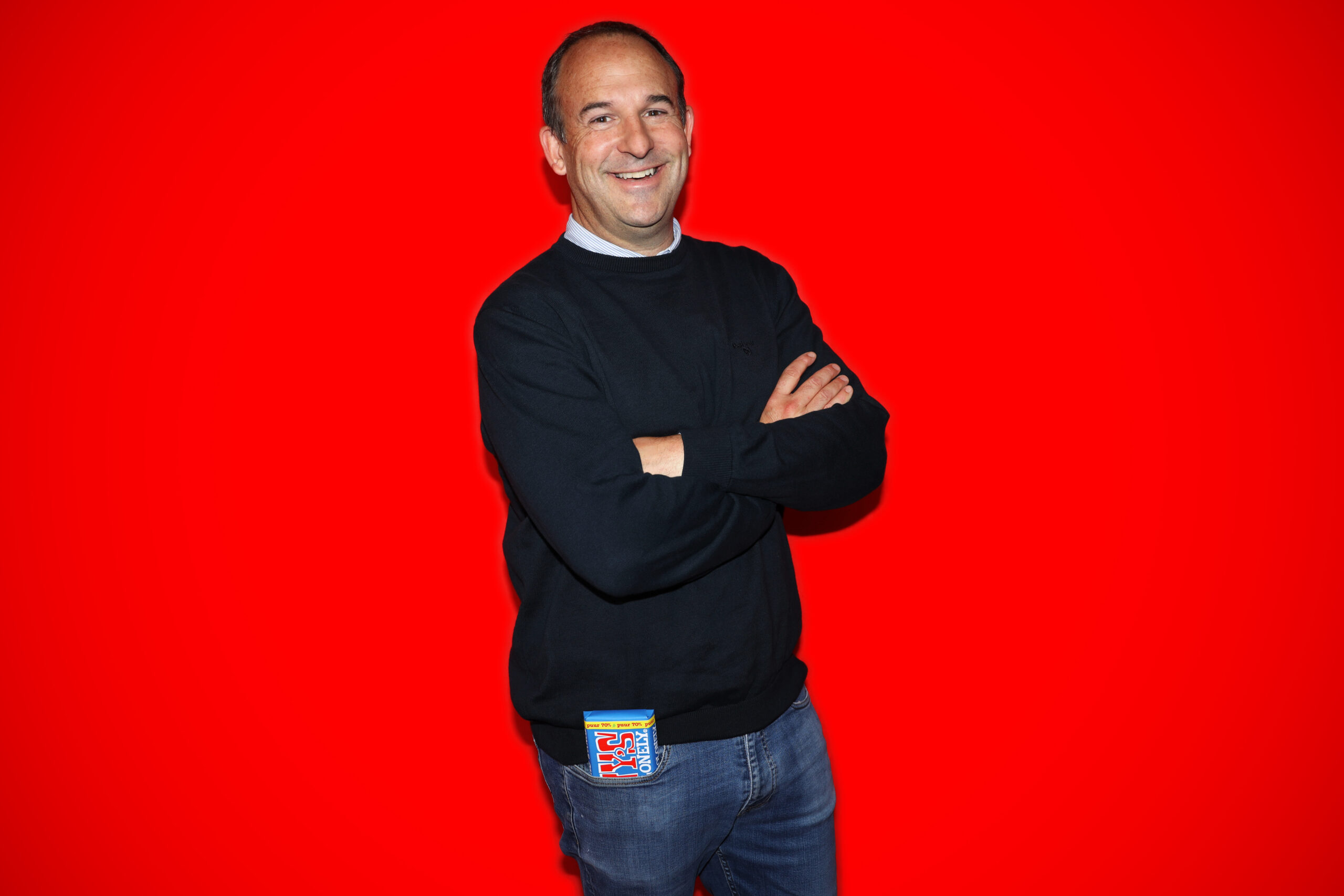Future-Proofing Your Business with Tony’s Chocolonely CEO

‘Locking the mission of a company’ to protect it long-term is an integral part of becoming a B Corp. In this process, all Certified B Corporations are required to legally change their governance structure. The B Corp legal framework allows companies to protect their mission and ensures that the company will continue to practice stakeholder governance even after capital raises and leadership changes. Certified B Corp Tony’s Chocolonely now went one step further, introducing ‘Tony’s Mission Lock‘ – a legal structure to future-proof the company and irrevocably secure its mission. We had the chance to talk to Douglas Lamont, Chief Chocolonely at Tony’s Chocolonely, to learn more about the new legal framework.

Being a B Corp means being a mission-driven business and making sure that decisions take into account all stakeholders, including people and the planet. What is Tony’s Chocolonely’s mission?
Tony’s Chocolonely is an impact company that makes chocolate and not the other way around. We are on a mission to eliminate forced labour and exploitation in the entire chocolate industry. As a mission-led business, we’ve been a certified B Corp since 2013, which means that all our decision-making revolves around maximizing our impact. Our goal is to end modern slavery and child labor in the cocoa industry in West Africa specifically, by systemically lifting farmers out of poverty through our 5 Sourcing Principles. This starts with sourcing fully traceable cocoa beans and paying farmers a higher price for their cocoa. It’s all about creating more equal supply chains. Not just through our supply chain, but also through others who adopt the same sourcing model. The traditional system is broken and the only way we can change it is together.
Why is protecting a company’s mission so important?
I’ve been fortunate to have the opportunity to work for and with truly purpose-driven companies and individuals. But I have also witnessed mission-led businesses losing their way, which means a company’s mission is never guaranteed. At Tony’s, we are an impact company first and foremost, and our mission, to eliminate child labour and all illegal labour in the entire chocolate supply chain, is too important to just fade away in the future. So naturally we’ve been looking for ways to ensure that our hard work does not get undone, ever.
You just implemented an additional measure to protect Tony’s Chocolonely’s mission. What is Tony’s Mission Lock and how does it work?
While I have no concerns that our mission will be compromised, we are going above and beyond our promise to stakeholders by creating a brand-new governing structure called Tony’s Mission Lock. This mechanism is put in place to forever protect our mission, independent of shareholder structure. Tony’s Mission Lock is given a golden share in Tony’s – which gives them the right to prevent legal changes to our mission and 5 Sourcing Principles, or the legal obligation of senior leadership to uphold these, as outlined in the company’s Articles of Association. This right can never be revoked.
Tony’s Mission Lock is overseen by three independent Mission Guardians – whose sole responsibility is representing and protecting Tony’s mission. They are given a set of tools to use when they believe a major mission drift may be happening, to hold the company accountable publicly and judicially. These tools include full access to Tony’s leadership team to uncover the details behind any concerns, the right to publish a double page spread in the company’s annual FAIR report, the right to oversee the publication of international newspaper advertisements in each of the major markets that Tony’s is active in and, ultimately, referring the matter for legal investigation and arbitration at the Enterprise Chamber of the Court of Appeal in Amsterdam.
We believe that the combination of the golden share and the escalation tools make this governing structure powerful and unique. With this new legal structure, we hope to raise the bar in the world of impact-driven business – and inspire other companies to act to protect their mission for the long term too.
How did you select the Mission Guardians and how do they represent your various stakeholders?
Tony’s Supervisory Board was tasked with selecting the Mission Guardians and was looking for a balance of skill sets and individuals with a strong track record in social impact and sustainability. They looked for someone who has demonstrated experience in growing mission-led companies with a range of public and private shareholder structures, which they found in Seth Goldman, Founder of Honest Tea and Eat the Change, Chair of Beyond Meat, and a world-leading impact entrepreneur. We’re really excited that Seth has agreed to be the Chair of the Mission Guardians. Ikenna Azuike is the second Guardian. He was picked for his extensive experience in social and climate activism, strategy and journalism, an understanding of West Africa’s socioeconomic context, as well as legal experience from his early career as a lawyer. And finally, the board looked for an impact expert who would understand Tony’s impact model from an operational point of view. As Tony’s former Chief of Impact, Operations, and People & Culture, Anne-Wil Dijkstra was the perfect fit. In the future, Mission Guardians will appoint the next set of Guardians to take over the reins.

Tony Chocolonely's Mission Guardians
In what types of scenarios has being a B Corp and protecting your mission influenced your decision-making? What does this evolution mean in practice?
I believe the most important element of being a B Corp is the commitment to continuous improvement and making sure that the mindset to balance people, profit and the planet is embedded into everyday decision-making at all levels of the company. So I don’t reflect on one or two decisions or big moments, the power comes from the cumulative effect of a thousand small decisions and choices being made with the right framework.
What changes do you hope to see (e.g. from a legislative perspective) to ensure all companies stay true to their stated mission, and put people and the planet before profit?
As a B Corp leader and Better Business Act chair, I firmly believe that companies have the responsibility to deliver strong returns for shareholders, but also for people and the planet. In fact, profit maximization should never be at the expense of human or environmental rights. While some businesses – mostly B Corps – will lead the way and raise the ceiling, others need more encouragement to accelerate change. This is where legislation plays a big role, to raise the floor. The government holds the power to ensure every company aligns its interests with those of wider society and the environment. Businesses that do this well have already shown it is not only the right thing to do, but also the smart thing to do.

About Tony’s Chocolonely
Tony’s Chocolonely is an impact company that makes chocolate. Putting impact before profit — Tony’s Chocolonely‘s vision is to make chocolate 100% slave free. Not just their own, but all chocolate worldwide.
The company was founded in 2005 by 3 journalists from the Dutch TV show ‘Keuringsdienst van Waarde’ after they discovered that the world’s largest chocolate manufacturers were buying cocoa from plantations that used child labor and modern slavery.
Since then, Tony’s Chocolonely has dedicated its efforts to raising awareness of and eliminating inequality in the chocolate industry. Tony’s Chocolonely leads by example by building direct, long-term relationships with cocoa farmers in Ghana and Côte d’Ivoire, paying them a higher price and working together to solve the underlying causes of modern slavery and child labour in cocoa.
Tony’s Chocolonely wants to inspire the industry as a whole to make 100% slave free the norm in chocolate. They believe that being a better business should be the norm, not the exception. The brand has grown to become one of the market leaders in the Netherlands and its bars are now available almost worldwide, with offices in the Netherlands, USA, UK, Germany, Austria, Belgium and Sweden.
Tony’s Chocolonely is a B Corp and Fairtrade-certified.
